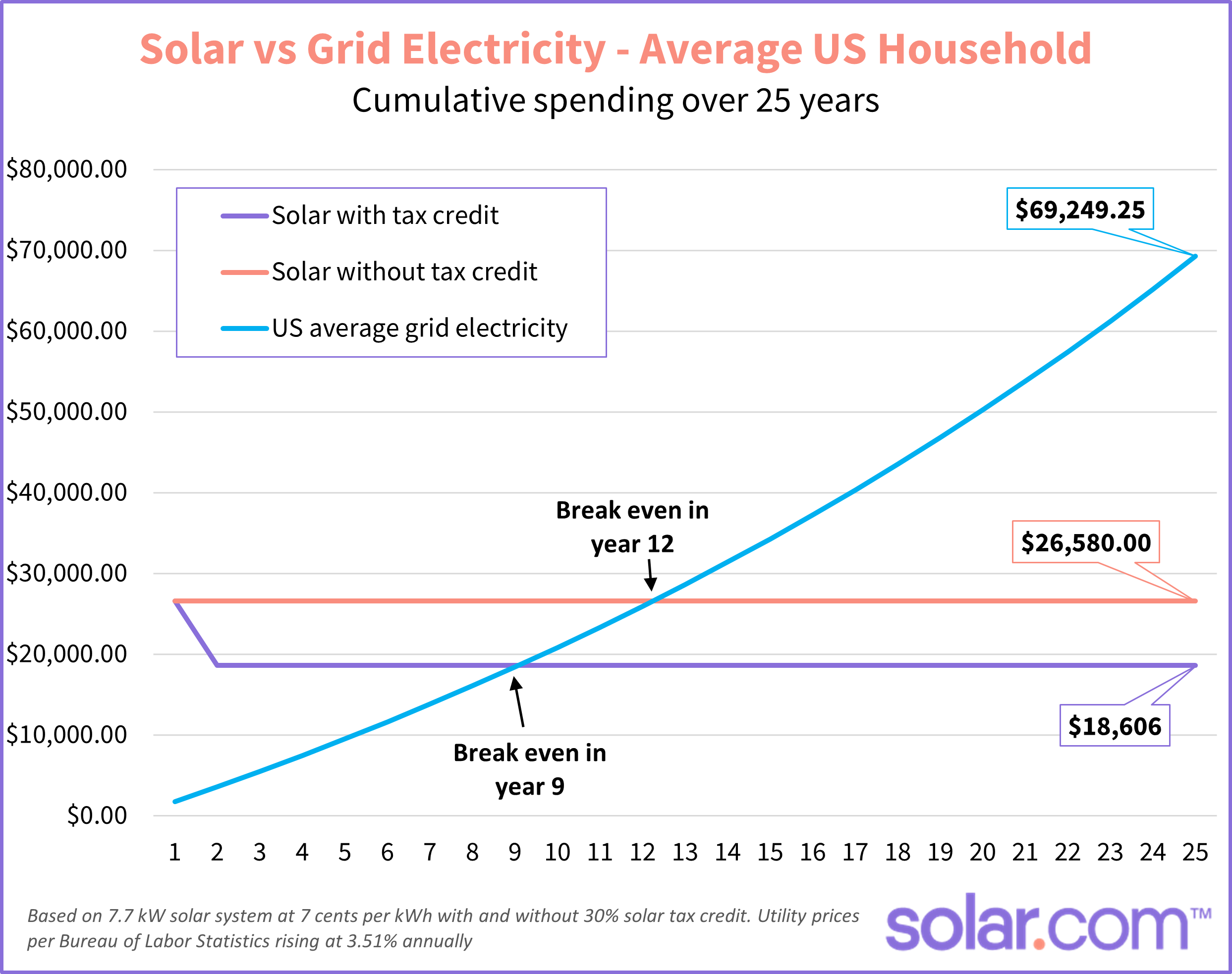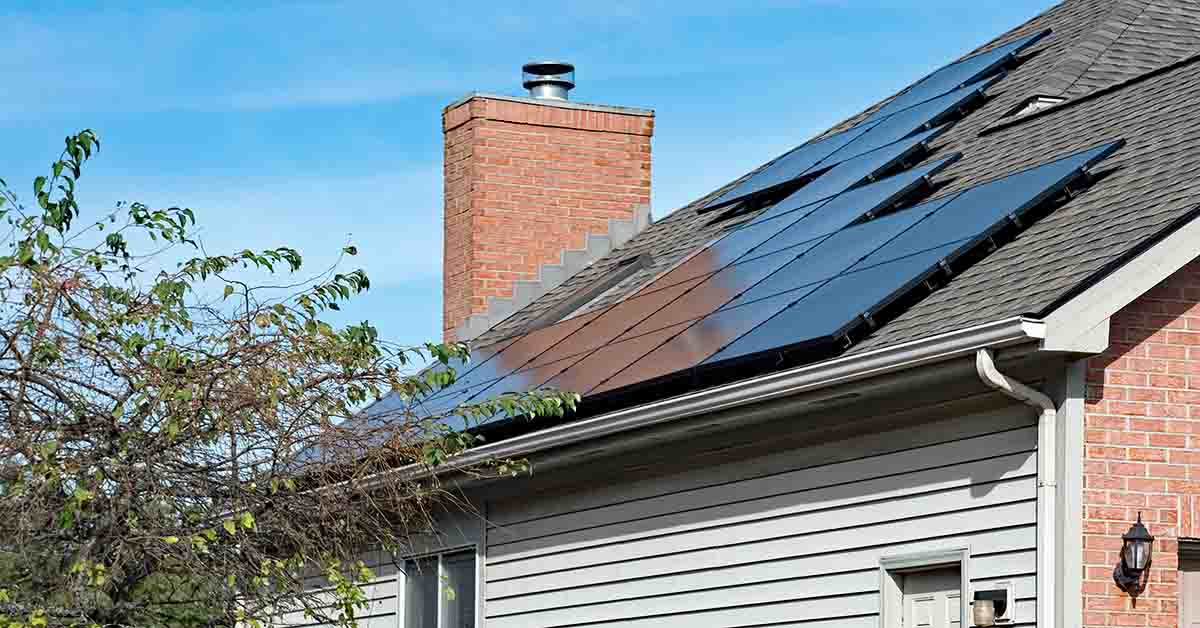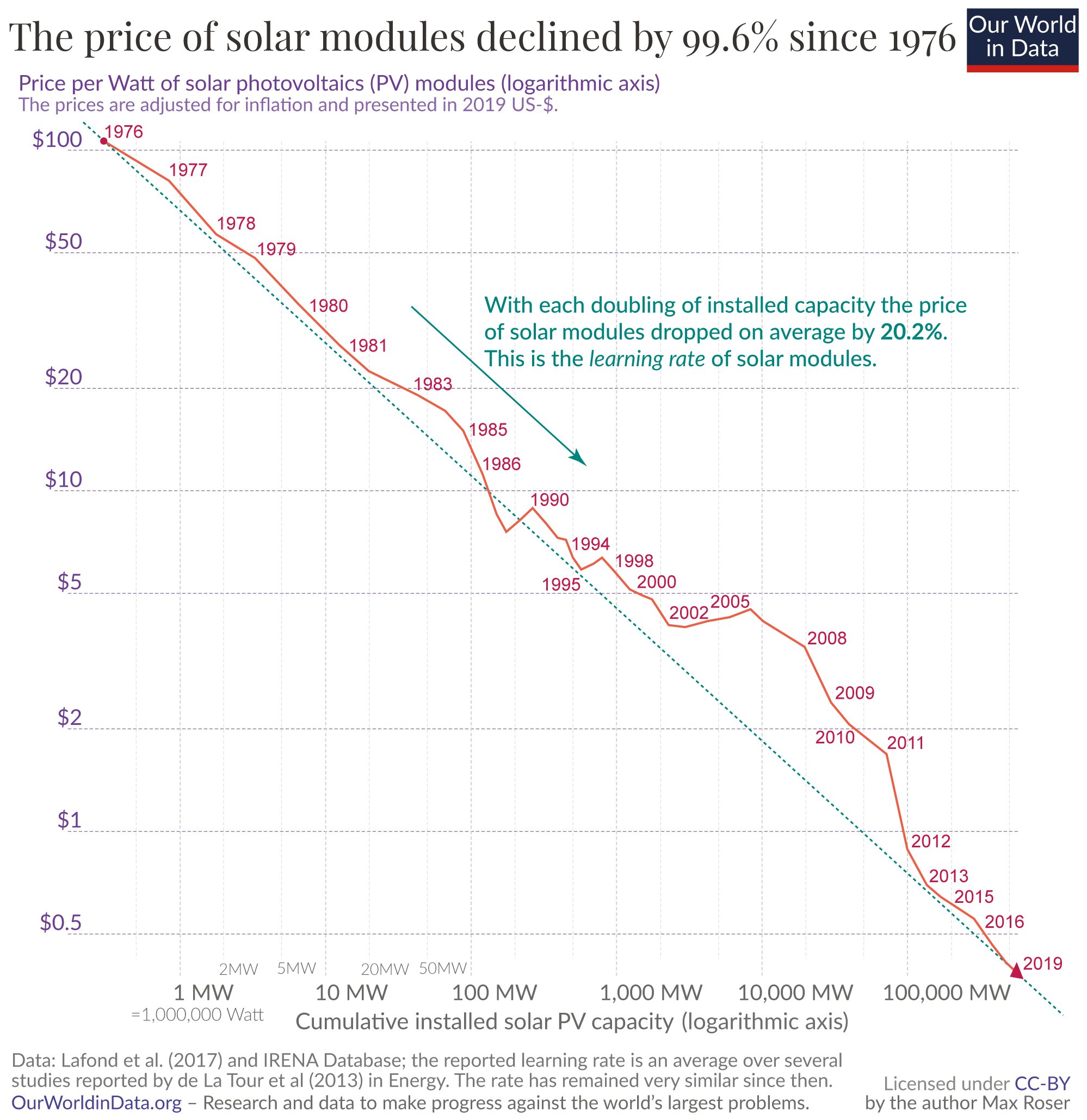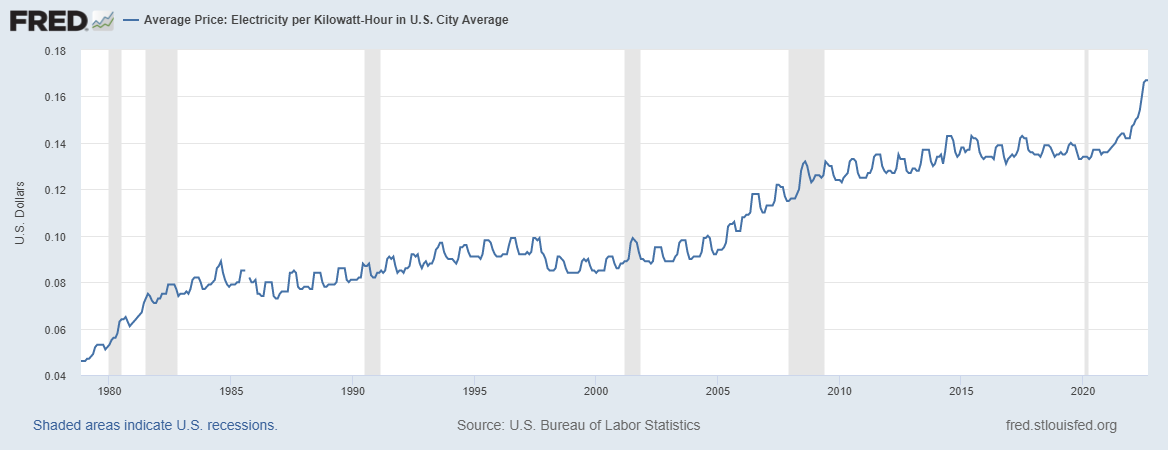
With technology improving and costs falling, the advantages of solar energy are becoming more apparent by the day.
What was once a luxury item that only wealthy homeowners could afford is now a cost-cutting measure that average homeowners can’t afford NOT to consider. But the benefits of going solar reach beyond energy savings and touch everything from home value to the long-term health of the global ecosystem.
The five main advantages of solar energy are:
- Energy savings
- Versatility
- Environmental benefits
- Increased home value
- Long performance warranties
Let’s dive to the biggest advantage for most homeowners: energy savings.
Energy savings
As we mentioned above, solar panels are no longer a luxury item – they’re a reliable long-term investment and a hedge against rising energy costs.
As of October 2022, the average price of grid electricity was 16.7 cents per kilowatt hour – up 16% from the year before – while the average cost of solar electricity was around 7 cents per kilowatt hour for systems purchased through solar.com.
The primary advantage of solar energy is that it freezes your energy costs at a low rate for 25+ years, effectively shielding you from energy price increases. Here’s how buying a solar system compares to paying for grid electricity looks for the average American household:

Yes, solar requires a sizeable upfront investment, unless you choose to finance with a solar loan. However, solar systems typically pay for themselves several times over and can yield over $100,000 in energy savings over their warrantied life.
Calculate how much you could save by going solar.
Versatility
The second advantage of solar energy is its versatility. While you probably picture solar panels in sunny places like Florida and California, rooftop solar can provide clean energy and utility bill savings in almost every corner of the US.
That’s right, solar even works in rainy Seattle, where electricity is cheap and it’s overcast more than 200 days per year.
There’s a few things at play here. First, solar panels can use both direct and indirect sunlight. So even if it’s cloudy, panels can still produce electricity. Second, using net metering or battery storage, you can bank excess solar production from sunny days to offset the times your panels aren’t producing.
That also means that solar is suitable for urban, suburban, and rural installations. If you live in a city or a suburb, you can pair solar panels with net metering to offset your electricity bill. If you’re rural or off-grid, you can pair solar panels with battery storage to create your own miniature utility.
Solar can also be installed on a variety of roof types or standalone configurations. The one thing to look out for is shading. If you have tall trees or building surrounding your home, solar may not be the ideal investment.
Related reading: The Pros and Cons of Going Solar
Environmental benefits
It’s hard to overstate the environmental advantages of solar energy and how crucial it is to both curbing and preparing for the effects of climate change.
In terms of curbing climate change, solar is a renewable energy source with a fraction of the emissions of natural gas or coal. In fact, the small amount of emissions required to manufacture a solar panel are offset within its first two years of production. That leaves 2-3 decades of emission-free energy production.
Rooftop solar is especially eco-friendly because it requires no additional land use. Other forms of energy – like fracking, coal mining, hydroelectric, wind, and large-scale solar – disrupt natural ecosystems. Rooftop solar, on the other hand, does not.
There are also local benefits to rooftop solar. By producing clean energy, you are reducing your local utility’s reliance on fossil fuels and thereby reducing local carbon emissions that contribute to poor health outcomes like childhood asthma.
Increase home value
In addition to energy savings, solar panels offer a second form of return on investment in increased home value.
Studies by Zillow and the Berkeley Lab both concluded that solar panels increase home values – the only question is by how much. Zillow put the figure at 4.1% of the existing home value, while Berkeley Lab found it was around $4,000 per kW of solar capacity installed.
The advantage to homeowners is they can recoup the cost of going solar even if they move. And, if they take advantage of the 30% federal solar tax credit, the panels could provide more home value than the net cost of buying them.
Better yet, 34 states plus the District of Columbia have property tax exemptions for solar equipment. In many instances, that means you don’t have to pay tax on the additional value solar equipment adds to your home.

Long, warrantied lifespan
Another advantage of solar energy that strengthens every other point on this list is the long, warrantied lifespan of today’s solar panels.
Modern solar panels typically have a 25-year manufacturer’s performance guarantee that ensures the panels maintain a certain level of output – typically 85% – throughout their warrantied life. That’s far longer than the warranty on a car, furnace, laptop, or almost anything else you can buy.
Solar panels have such long warranties because they essentially have no moving parts. And it’s important to note that solar panels don’t die or retire at the end of the warranty – they can continue producing electricity for much longer, albeit at a lower rate each year.
This long performance guarantee sets solar panels apart from other types of investments. Can you imagine a stock broker guaranteeing your portfolio will perform at a certain level for a quarter of a century?
The bottom line: Home solar has many advantages
Perhaps the biggest advantage of solar energy is that it’s got a little something for everyone.
- Want to reduce your energy costs for 25 years? Go solar.
- Want to reduce your carbon footprint? Go solar.
- Living off-grid and need an energy source? You guessed it: Go solar.
The advantages of solar energy are only compounding as the technology continues to improve and the price of electricity continues its steep climb.
Start your solar journey with multiple quotes from our network of trusted installers.



